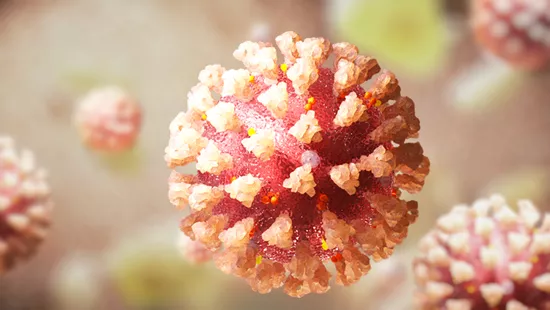American scientists wrote in the recently published journal of exposure science and environmental epidemiology that after testing the samples collected from the air and surface around the campus, they found that people are 1000 times more likely to be infected with novel coronavirus from the air they breathe than from the contact surface**

Between August 2020 and April 2021, Richard naizel, Professor of environmental health science and global public health at the University of Michigan, and his colleagues collected samples using air pumps and swabs at different locations on the closed campus. They collected a total of more than 250 air samples, of which 1.6% of the samples tested positive for novel coronavirus. Among more than 500 surface samples, 1.4% were positive.
The results show that the most dangerous environment is the gym. Among the samples collected in the gym, 75% of the air samples and 50% of the surface samples show positive results, among which the water dispenser button is the most vulnerable to pollution, while the samples extracted from the fitness equipment are not positive. In addition, the probability of positive results is much lower when samples are collected from the office or computer keyboard, light switch, desktop, microwave oven, refrigerator handle or student table.
Subsequently, the researchers compared the positive samples with the actual new coronavirus cases on campus. The results showed that the probability of infecting airborne novel coronavirus particles was about 1/100; The probability of novel coronavirus infection on the contaminated surface was 1/100000, and the former was 1000 times that of the latter.
"Our results show that the risk of novel coronavirus inhalation from the air is much higher than the risk of exposure to door handles, drinking fountains, keyboards, tables, sinks and light switches. Although the school environment may be different from other environments, our results suggest that people should pay more attention to the risk of coronavirus inhalation," naizel said
Elizabeth Scott, emeritus professor of Simmons University, who was not involved in the study, said: "people are increasingly aware that novel coronavirus is mainly transmitted through the air." However, she also warned that "in families and dormitories where people live together and repeatedly touch the same surface, the relative probability of novel coronavirus spreading through the surface is also very high, and the latest research has not assessed this private space risk."
She further pointed out that it is worth noting that "other respiratory viruses and other bacterial infections are mainly transmitted through contact. We need to continue to take effective and comprehensive health measures for the surface and air to prevent the spread of novel coronavirus in the community".